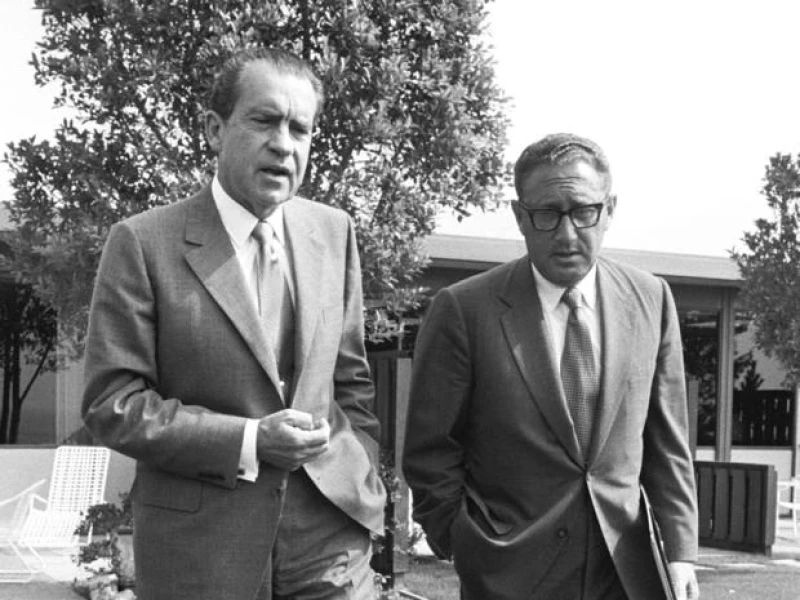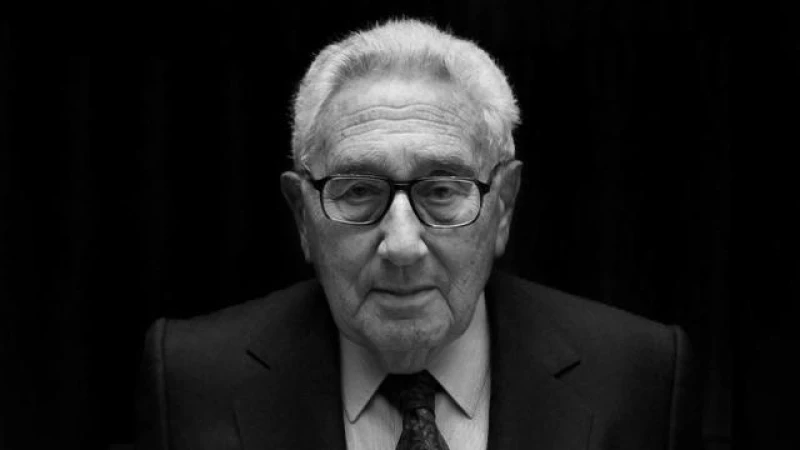Remembering Henry Kissinger

He was a commanding - and controversial - figure for our times. Former Secretary of State Henry Kissinger died this week at the age of 100. But for "Sunday Morning" senior contributor Ted Koppel, Kissinger was a complicated diplomat who became a friend:
I've being covering Henry Kissinger for more than fifty years, since the early stages, when he held high office, wielding real power, crafting historic changes toward China, the Middle East, the Soviet Union.
In his 90s, Kissinger co-authored a book (was it his 20th or 21st?), this one on AI, which he considered the greatest challenge to human survival.
"With the advent of artificial intelligence, forms of warfare are conceivable that could be even more destructive than nuclear weapons," Kissinger said.
- Henry Kissinger on a potential artificial intelligence arms race ("Sunday Morning")
After he turned 100, he flew to China at the invitation of the Chinese government. This, at a time of chilly relations between Washington and Beijing.
Henry Kissinger went from the dizzying heights of public acclaim (he was the most admired American in the 1970s, co-winner of the Nobel Peace Prize), to a much-maligned figure (bitterly condemned in some quarters for his record on human rights).
During our last interview this spring, I reminded Kissinger of what Pope Urban VIII is credited with having said, of another gifted and controversial statesman, Cardinal Richelieu: "If there is a God," so the quote goes, "Richelieu will have much to answer for; and if not, well, he had a successful life."
I said, "When I saw that, I thought, it's the kind of thing they might say about you."
"Yup," Kissinger replied. "I don't feel, when you say, He had a lot to answer for, which means, It was of dubious moral quality."
"That's what it means, yes."
"That's not my conception of my life," Kissinger said. "Every difficult political decision has an element of ambiguity. Otherwise, it wouldn't be difficult."
On the ultimate question, Kissinger showed a moment of quiet reflection, even humility, when asked if he believes in an afterlife.
"I believe that we're living in a tiny part of the universe," he said. "So, I think it is possible that there are aspects to existence that transcend our own individual lives."
A question to which no one has yet provided a certain answer ... not even Henry Kissinger.
See also:
- Why Henry Kissinger remains a controversial figure
- Henry Kissinger: A look into the "60 Minutes" archive
- Renowned historian emphasizes the significance of studying diplomacy in the U.S. through the lens of Henry Kissinger
- Henry Kissinger: An in-depth interview on "Face the Nation"
- Cable links Kissinger to the controversy surrounding Chile
- Book uncovers Nixon's views on gay people, women, and his relationship with Kissinger
Story produced by Deirdre Cohen. Editor: Ed Givnish.







